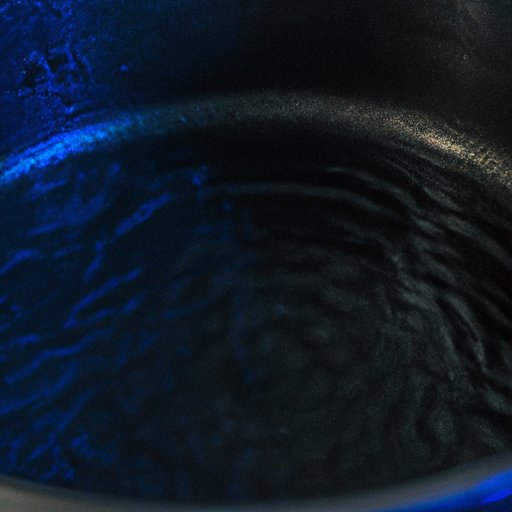I. Introduction
Have you ever wondered whether water boiling is a chemical or physical change? It can be confusing to differentiate between the two processes, but understanding this difference is crucial in fields such as chemistry and physics. The aim of this article is to delve deeper into the science behind boiling water and determine whether it is a chemical or physical change.
II. Understanding Chemical and Physical Changes
Before determining whether water boiling is a chemical or physical change, it is essential to understand the definitions of both categories. A chemical change is a process in which a new substance is formed due to the breaking and forming of chemical bonds. A physical change, on the other hand, is a process in which the substance remains the same, but its physical properties change.
Some examples of chemical changes include combustion, fermentation, and rusting. In contrast, physical changes include changes in state such as melting, freezing, and evaporation.
III. The Science Behind Water Boiling
Boiling is the process in which a liquid turns into a gas by the addition of heat. The boiling point of a substance refers to the temperature at which its vapor pressure is equal to the atmospheric pressure. The atmospheric pressure at sea level is approximately 1 atmosphere (atm), which is equivalent to 101.325 kilopascals (kPa).
The boiling point of water is 100 degrees Celsius (C) or 212 degrees Fahrenheit (F) at 1 atm. However, the boiling point may differ if the pressure is altered. For example, at higher altitudes where the atmospheric pressure is lower, the boiling point of water decreases.
During the boiling process, the heat energy causes the water molecules to move faster, and they escape the liquid phase and turn into water vapor. The water vapor moves upward and is cooled as it reaches the cooler air, condensing back into liquid droplets, forming clouds, and providing precipitation.
The energy changes that occur during boiling can be understood through thermodynamics. When heat is added to water, it absorbs energy and increases its internal energy. This energy is used to overcome the intermolecular forces between the water molecules, allowing them to change their state from liquid to gas.
IV. Boiling Water: Physical or Chemical Change?
Now comes the question that we have been waiting to answer: is boiling water a chemical or physical change? The answer is that it is a physical change.
During the boiling process, the water molecules do not break down, nor do they form new compounds. Instead, the intermolecular forces between them are broken, and they change their state from a liquid to a gas. Therefore, the water boiling process is classified as a physical change.
One of the arguments supporting this claim is that when water is boiled, it can be turned back to liquid water by cooling it down, demonstrating that no permanent change has occurred.
V. Exploring the Chemistry of Boiling Water
Although boiling water is a physical change, some chemical reactions are occurring simultaneously. These reactions are related to the intermolecular forces between water molecules. Water molecules are held together by hydrogen bonds, and when they absorb heat, these bonds weaken, and the molecules can move more freely.
During boiling, some of the hydrogen bonds break, and the water molecules move farther apart. However, new hydrogen bonds are formed between the vapor molecules. These bonds keep the water molecules close to one another, despite being in the gas state. Therefore, although the water molecules do not change chemically, they still undergo some chemical changes during boiling.
VI. Clearing Up the Confusion: The Answer to Whether Boiling Water is a Chemical or Physical Change
The confusion between the classification of boiling water as a chemical or physical change stems from the fact that it involves both. However, these changes are not equal in magnitude, and we must determine which process is dominant.
While chemical changes do occur, the dominant change that occurs during boiling water is a physical change in the state of water molecules. Therefore, when asked whether boiling water is a chemical or physical change, the answer is that it is primarily a physical change, with some minor chemical changes occurring simultaneously.
VII. Water Boiling: A Lesson in Science and Thermodynamics – Is it Chemistry or Physics?
Water boiling is a complex process that involves both chemistry and physics. Physics deals with the change in the state of water molecules during boiling, while chemistry explains the chemical reactions that underlie these changes.
Thermodynamics is a branch of physics that deals with energy changes within a system. The boiling process is an example of a thermodynamic process. The heat energy that is added to water provides the energy needed to overcome the intermolecular forces between water molecules and change their state. Therefore, the study of boiling water involves both physics and thermodynamics.
VIII. Conclusion
In conclusion, water boiling is a fascinating process that involves both physical and chemical changes. Although some chemical reactions occur during boiling, the dominant change that takes place is a physical change in the state of water molecules. This understanding is crucial for fields such as chemistry and physics, as it provides insight into the fundamental processes that occur in nature.
The takeaway message from this article is the importance of understanding the difference between chemical and physical changes and the need to explore various phenomena with a scientific approach. As science evolves, new discoveries will continue to add to our understanding of such processes.
Future research could explore the boiling point of other liquids and how their boiling point changes when they are subjected to changes in atmospheric pressure. In addition, the role of hydrogen bonds between molecules during boiling could be further explored.
